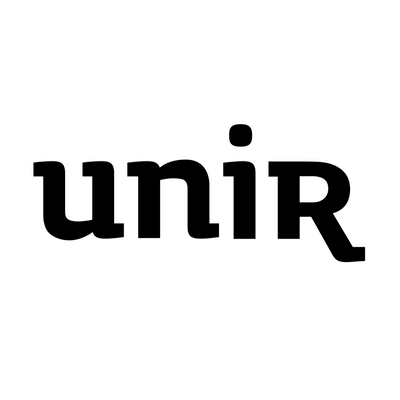The birth of the first accredited interdisciplinary university in the UK
By Carl Gombrich, Academic Lead at London Interdisciplinary School
The London Interdisciplinary School is a new higher education provider based in London, United Kingdom. Founded in 2017, it is the first new institution since the 1960s to hold full degree-awarding powers in the United Kingdom from inception. The School offers in-person undergraduate and postgraduate degrees, as well as professional courses.
Students on the 3-year interdisciplinary undergraduate degree follow a problem-based learning model studying complex problems through interdisciplinary teaching. They will graduate with a Bachelor of Arts and Science (BASc) in Interdisciplinary Problems and Methods.
The most innovative Interdisciplinary School
LIS undergraduate curriculum – a bachelor in arts and sciences (BASc) in Interdisciplinary Problems and Methods – based in the first two years of studies around real-world problems, and methods to tackle these problems, is unique in the UK and possibly unique in its details in the world.
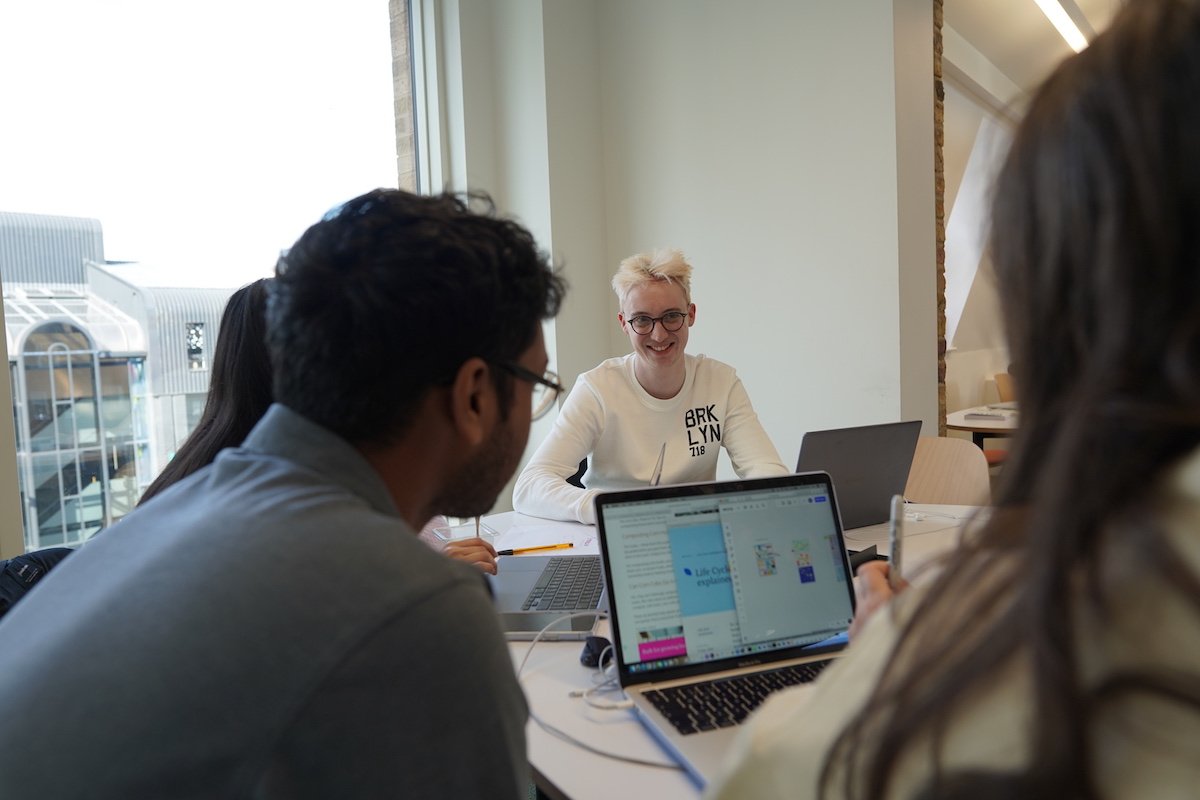
To give a little more detail on the bachelor’s degree, our curriculum is structured as follows:
- Real-world Problems – such as Inequality, Technology and Ethics, Sustainability. Etc
- Quantitative and Qualitative Methods to help tackle these problems – e.g. data science, mathematical modelling, natural language processing, close reading, writing, ethnography, participant observation, interview techniques, video-making, graphic visual methods, etc.
- Disciplinary Perspectives – these are 3 week blocks of teaching which look at how the main concepts of a discipline may apply to a problem. For example, how might aspects of neuroscience seek to explain cycles of inequality, or how might concepts from the discipline of anthropology enter the debates around AI and ethics?
- One compulsory module on inter- or cross-disciplinary concepts and mental models
- An extended, 7-week project at the end of years 1 and 2 during which students tackle a problem of personal interest to them, using quantitative and qualitative methods learned during the previous two terms.
As a further level of detail, we are active in thinking how to develop problem-based and interdisciplinary learning, and are introducing techniques and skills such as ‘framing’ or ‘criticality’ as metaskills associated with tackling complex problems; we foreground a new metaskill in each particular problem-based module. We are also developing processes for teaching ‘synthesis’ and ‘integration’ – often promoted as hallmarks of interdisciplinarity but rarely taught explicitly as part of educational programmes.
We operate a fairly standard module credit system, with each module worth between 15 and 24 credits, and summing to 120 credits per year – this is the norm in the UK. But the scope of the curriculum is unique in its breadth and the details of the content are highly innovative. We don’t have any exams and all our summative assessed work is in the form of coursework, both individual and group work. Our assessments are wide-ranging in type, from video products to group pitches, to extended written work to pieces of code or data visualisations.
As a further – but different sort of – example of the innovative nature of LIS, we have perhaps a uniquely open admissions policy and accept students with outstanding grades alongside those who have far less good, or even no, grades. Such students may include those from substandard schools, students who have had their education interrupted due to health or behaviour issues and mature students who may have left school early or may be seeking a change in direction. This makes for a unique cohort – diverse in outlook, range, skills, knowledge and prior abilities. In this we are more like a comprehensive school than a usual UK university in which there is often some homogeneity within a particular disciplinary cohort. This makes ours a challenging cohort to teach but it is rewarding and adds greatly to the value of the learning community: in navigating such differences among the student body, our students have an opportunity to learn important life skills to an extent not often encountered on other university courses.
In addition, this year we have launched an innovative master in arts and sciences (MASc) in Interdisciplinary Practice.
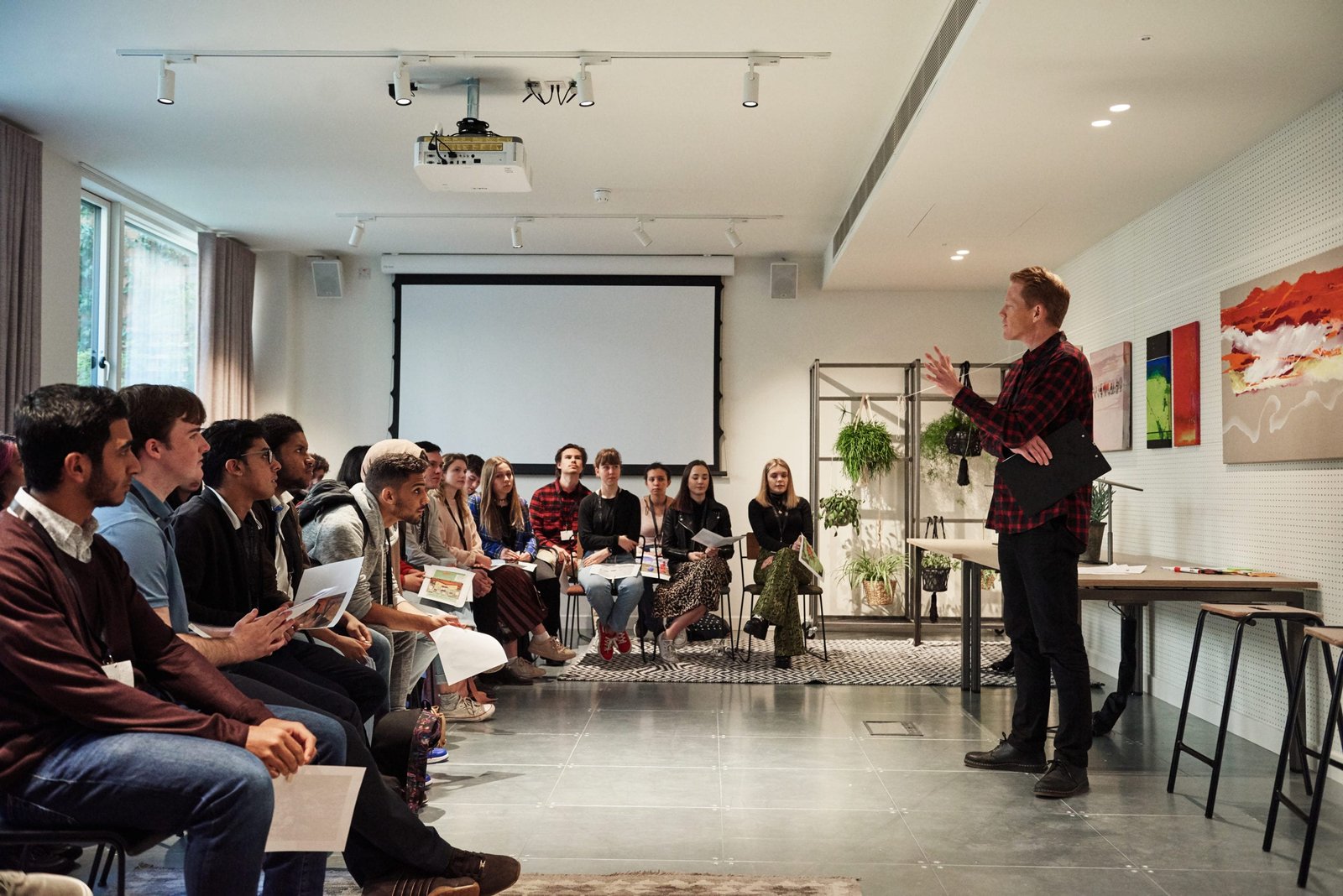
The LIS pedagogical model
At LIS, we use almost entirely a ‘flipped learning’ model of pedagogy – and we couch this in something we call ‘prep culture’. We utilise our Virtual Learning Environment – Eduflow – to upload content and small quizzes and exercises for students to do in advance, asynchronously, before the synchronous class sessions in which we meet as a plenary. The synchronous sessions are then planned to reward students who have done the prep and to build the learning through mini-activities, presentations, discussions (small group and plenary), etc.
Despite evidence that this is a good way to learn – in that it respects several well-known requirements of learning: spaced practice, repetition, elaboration, interleaving, forced recall, etc. – there is no denying that this is a challenging model to operationalise. Students need strong incentives to engage with the material in advance of class and not to fall back on the easier and tradition-bound, though less productive, approach of attending lectures, not doing much in-between the lectures, and cramming for final exams or other summative assessments.
We are currently exploring ways to give small credits/grades for submitting prep work in advance of class and/or for evidence of good use of the prep work in the synchronous class time. Our ability to implement such grades will depend somewhat on the UK regulator’s attitude to there being some summative assessment of this type.
Straddling the academic and the pastoral, we have also introduced a coaching model which sits alongside a more traditional tutorial relationship between academics and students. In coaching, groups of five students meet with their coach every week to discuss learning, personal goals, highs and lows, connections they are making in their studies, etc. Due to the uniquely interdisciplinary curriculum, we try to ensure that interdisciplinary desiderata such as ‘integrating’ across domains or learning to take different perspectives on a problem form part of the coaching sessions. The groups of five are also usually the same group who will be working together on the main problem of the term, so coaching gives this group a chance to touch base each week and plan key co-working and group tasks for the up-coming weeks.
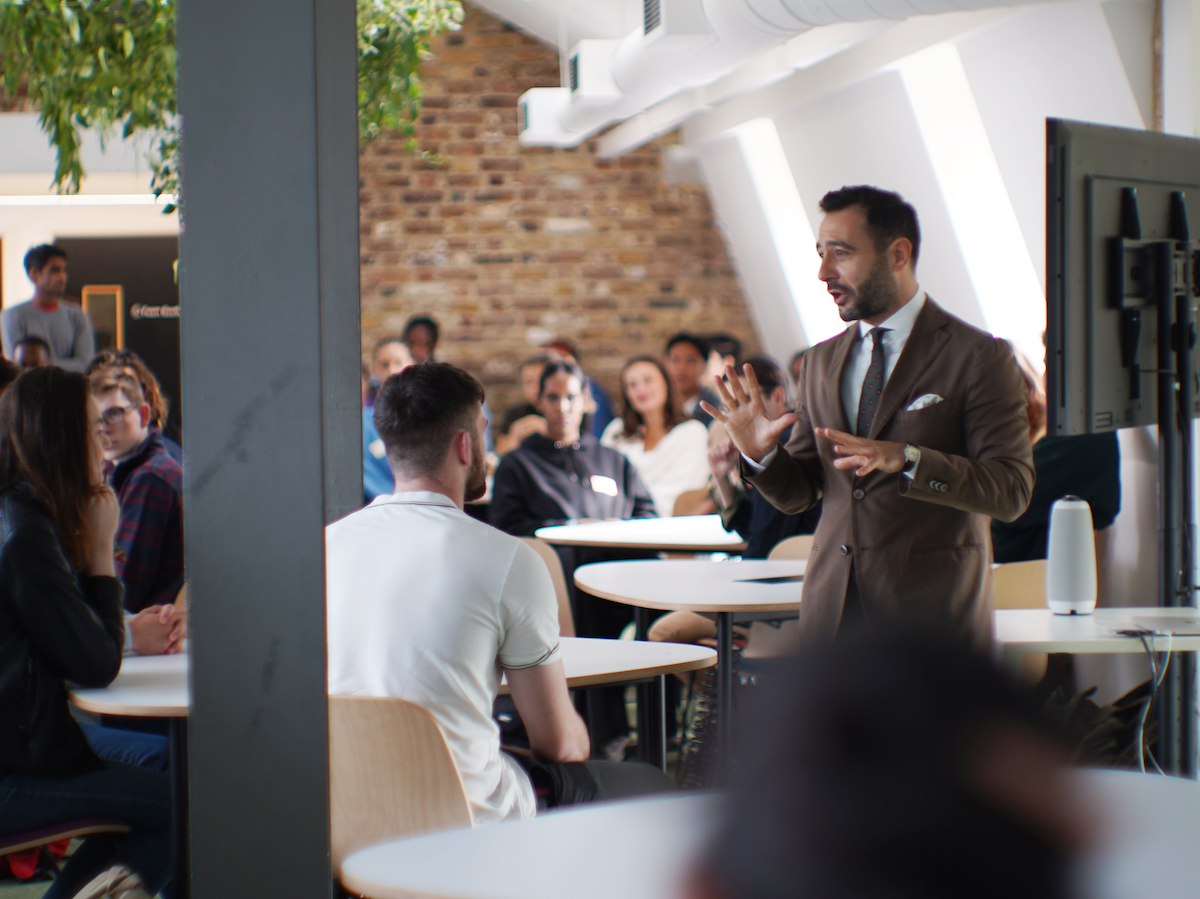
The LIS Selection Process
As we are a brand new university, building visibility and global awareness, our students are currently mostly from the UK, although we received applications from +85 countries. We have achieved a Tier 4 licence which allows us to recruit international students and we currently have three international students on the programme out of 65. Our ambition is to recruit many more international students and we are confident they would enjoy and benefit from our unique and globally-relevant curriculum.
Our selection process is extensive. We interview every valid application. By ‘valid’ we mean not those international applications which we screen out due to suspicions about seriousness to study the programme nor the occasional UK application which is seriously misguided.
Once selected, we offer each applicant two 30-minute interviews on the same day: one to explore the student’s mindset and interests, and another interview to explore how the student thinks in a more conceptual and academic way. Included in the latter is a reading task, a task based on some data and a graph to analyse. We do not ask for personal statements as part of the selection process as these can easily be gamed and can provide an advantage to more privileged applicants.
Following the interview, our Admissions Decision Committee meets to consider each application holistically. The Committee considers: the notes made by the interviewers at interview; the academic achievement of the applicant to date, and the contextual situation of the applicant (standard of school, any relevant social indicators, health issues, etc.). The student is then either rejected or made a contextual offer, based on the deliberations of the Committee. This means that each applicant gets a bespoke conditional offer (or an unconditional offer if the Committee is satisfied that the candidate is already sufficiently qualified to succeed on the programme) and that the range of offers is wide. This is likely another unique aspect of our programme.
Accreditation
LIS is regulated by the UK Government Office for Students (OfS) and the Quality Assurance Agency for Higher Education in the UK (QAA).
We were the first institution in the UK for 40 plus years (since the University of Warwick) to achieve our own (provisional) degree awarding powers (DAPs) from inception. These were granted to us by the Office for Students (OfS). Provided we continue to meet the conditions, this will allow us to award our own degrees from summer 2024 (when the first cohort graduates) onwards.
We currently offer one Bachelor in Arts and Sciences BASc in Interdisciplinary Problems and Methods, and one Master of Arts and Sciences MASc in Interdisciplinary Practice.
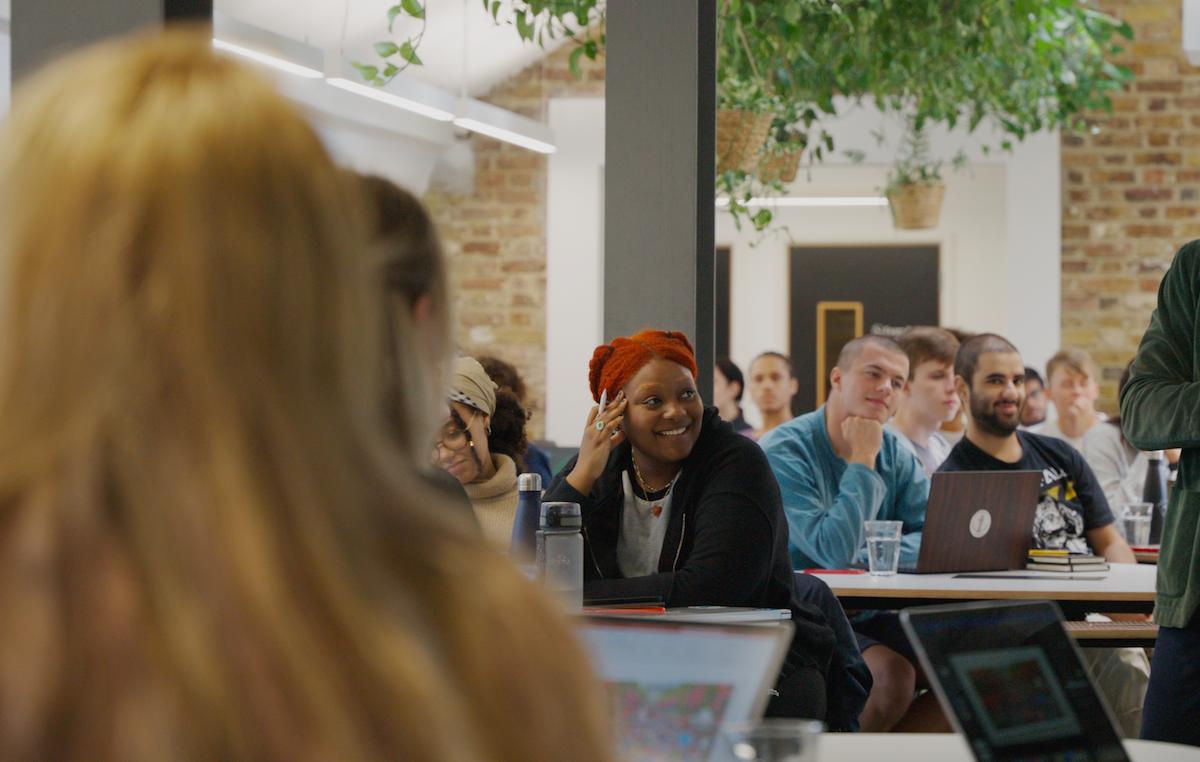
The LIS learning experience
Our prep culture means that we give almost no long IRL (In Real Life) lectures but rather use the time we meet with students IRL to do student activities, presentations, short group work, consolidation, spaced practise, elaboration, and discussion-based activities. We reserve the lecture format for ‘masterclasses’ and one-off learning events (often with external speakers) so that students also have additional variety in their learning experience.
We offer a substantial portion of our classes online. Most faculty and students prefer classes to be IRL but we have the option to offer 50% of a module online if we wish. I personally offer about 40% of my compulsory module in Mental Models and Superconcepts online which seems a nice balance. Most faculty offer somewhere between 10-30% online. We are continuing to experiment with emerging learning platforms and have recently been using the Butter platform with some success. We have the flexibility and openness to trial many different ways of using the affordances of tech in our learning and teaching. However, we wish to remain a campus-based university and, indeed, this aspect is appealing to students. This year, alongside our strong offer in arts and digital making, we have a Materials and Making module in which students get their hands dirty with blacksmithing and all kinds of physically-based, corporeal and embodied learning which many enjoy and most have not been exposed to before.
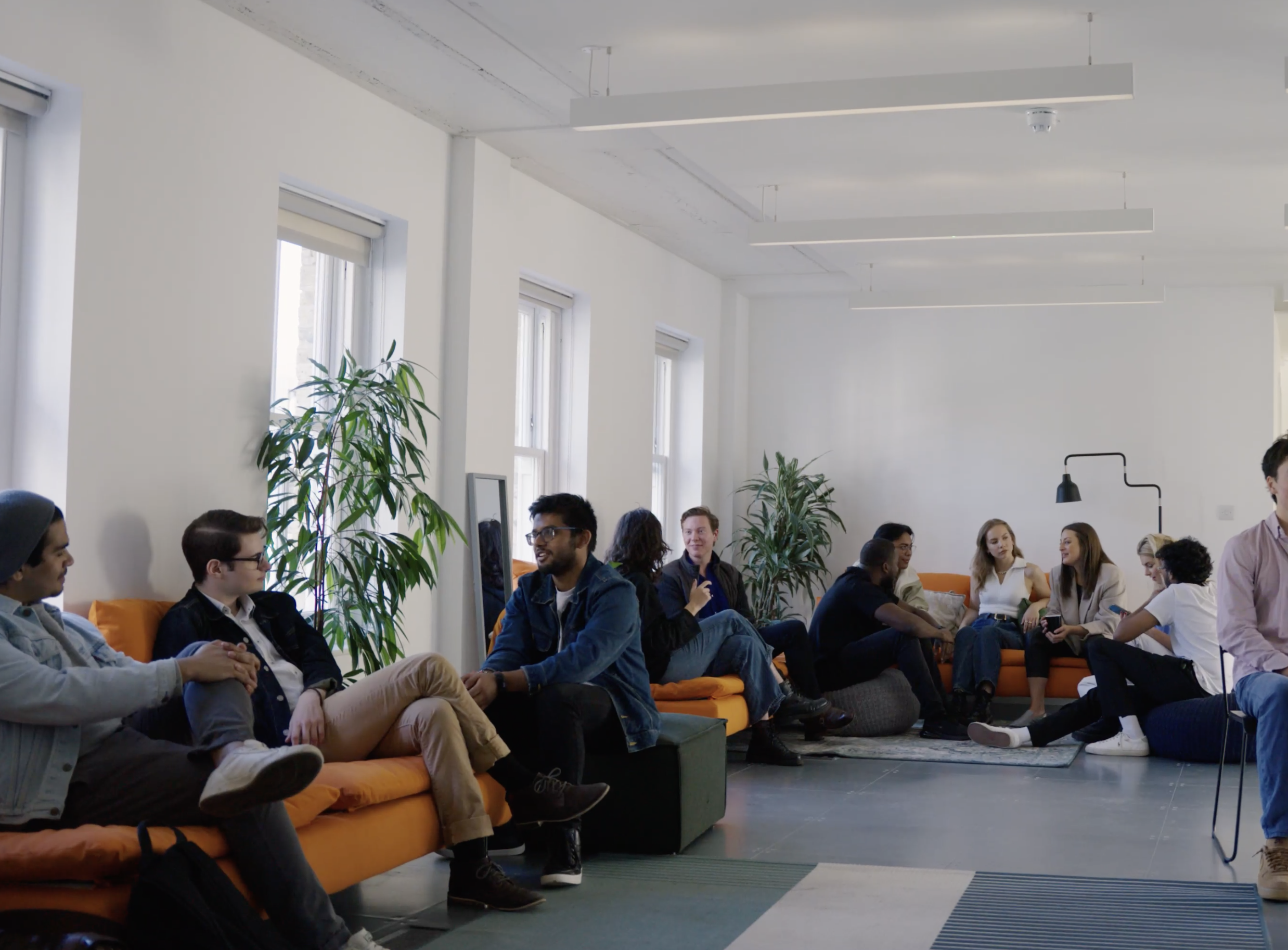
We also involve many external organisations in our curriculum – giving one-off lectures, working with our students on projects, and involve the organisations in informal events etc. We want our students to see how their more academic learning can connect with the concerns of those outside university and also how any more theoretic learning they are doing may need to adapt when confronted with or placed alongside the problems with which organisations other than universities are wrestling.
For example, last year our first year module on Sustainability involved students working with 13 external organisations to produce consultancy reports on a question of sustainability relevant to that client.We currently only have undergraduate students up the 2nd year of our programme and so are 20 months from our first graduating bachelors cohort. However, we already have in place an excellent careers service and this year, our first, we managed to place every student who wanted one on an internship. The feedback we had from this was outstanding with 100% of employers saying they would recommend an LIS student as an intern and an 8.5/10 satisfaction score from employers regarding the performance of our students.
We also have in place ‘legacy groups’ – that is, groups of students who are encouraged to stay in touch throughout their degree and beyond graduation – and have in train plans for an alumni network.
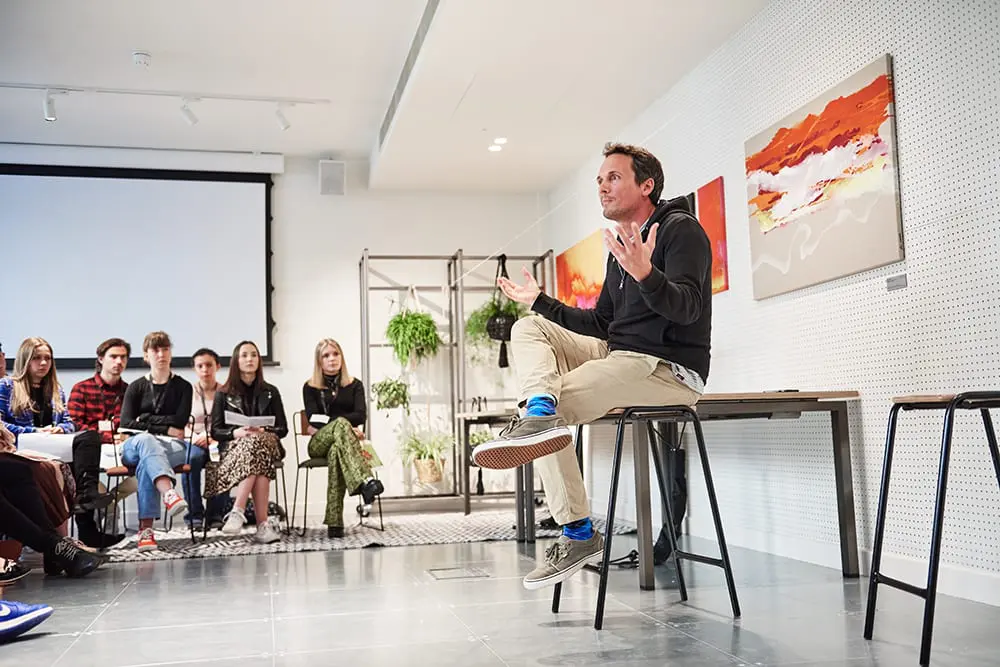
The LIS teaching approach
We are founded on the basis that we are a teaching institution and so we place a lot of store by the quality of our teachers. Faculty were selected through an extensive process which involved first a written application, then a video relating to interdisciplinary teaching and, in the final round, a short class given to students as well as two interviews with existing faculty and other LIS staff. We have had around 1,000 applications for the 15 posts in our current faculty.
Now that we are operational, we are active in seeking out the best and most research-led teaching methods.Our Head of Learning and Teaching, who also has a role of Lead on Assessment, is a Harvard PhD in education and currently research-active in rethinking assessment. We also have other faculty with PhDs in education, and so pedagogy, assessment and education more widely are research themes of our university, informing our practice. Alongside the usual peer teaching observations and feedback, to ensure this research-led knowledge on teaching is disseminated as widely and as clearly as possible, we have a bi-weekly Reflective Practice Group at which all faculty meet to discuss aspects of learning and teaching.
In this group we have discussed many things – last year there was an emphasis on how to do better large group, interactive learning, as well as the need to improve in ‘differentiation’, due to the diverse nature of our cohort – but this year we are so far focussing on what ‘synthesis’ means an in interdisciplinary context and how to teach this to students, as well as how we develop our coaching model and what digital tools may be useful for online learning.
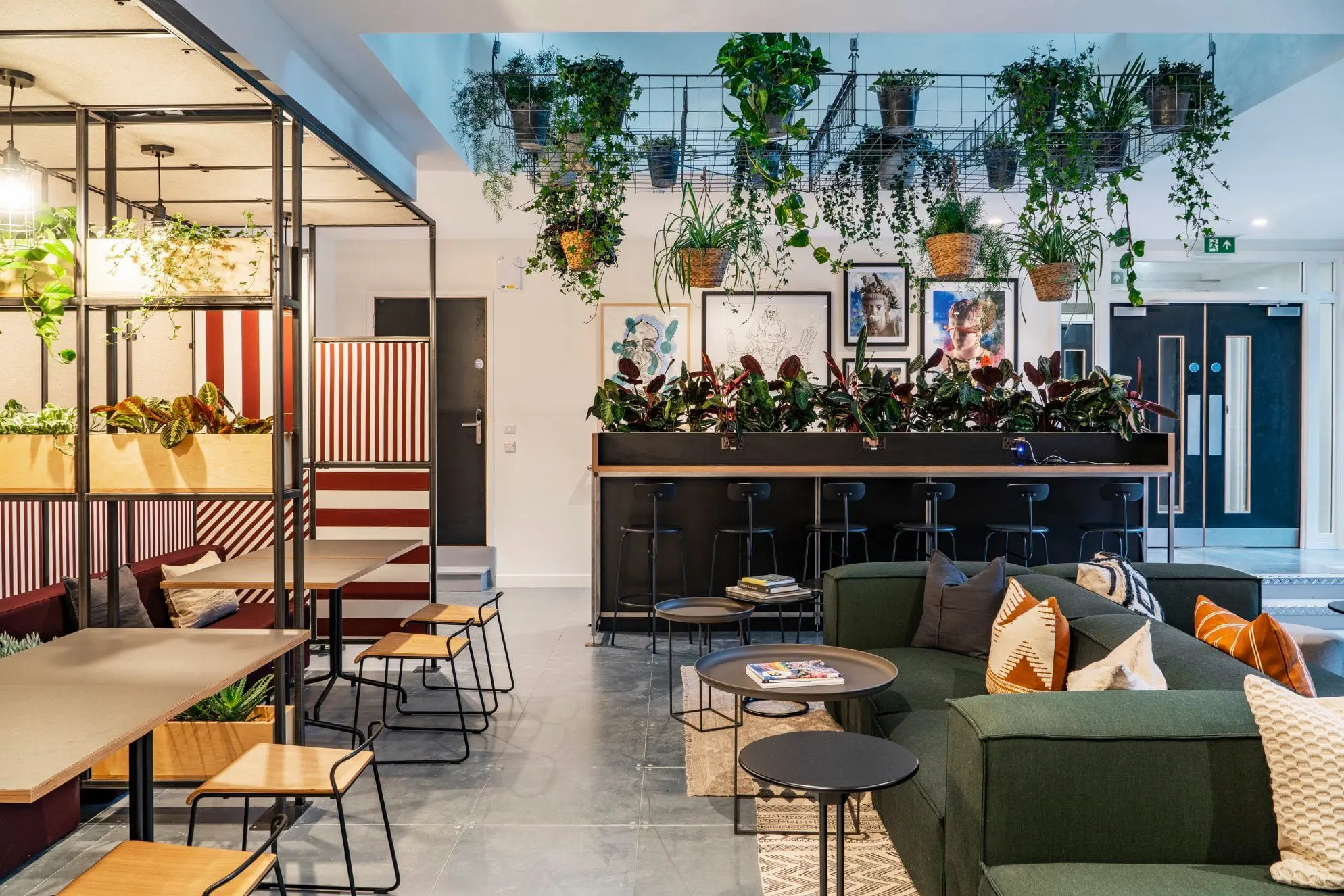
LIS ambitions 10 years from now
We aim to be a beacon of innovative higher education, particularly with regard to interdisciplinary curricula, how to teach in interdisciplinary ways and showcasing the value of interdisciplinarity in general. Our ambition is to grow to several thousand students over the next 5-10 years and be very much established and enduring within 20 years.
As part of considering future options, we are currently exploring the offering of more master’s programmes, especially in some combination of remote and campus-based learning. Our Chief Product Officer is working with faculty to design and provide a range of smaller master’s certificates in interdisciplinary areas where we have expertise – such as the Green Economy, Urban Design, Data Science and Leadership – alongside master’s degrees in a more traditional format.
We are also active in designing and delivering professional development programmes having successfully piloted several already, notably with several regional leadership groups in the NHS. We are working with several larger corporates and organisations concerned with social impact to design a range of courses related to interdisciplinary thinking and practice.
Early results and next steps Our retention rates from our first year were excellent. 61 students from an initial intake of 65 progressed to the 2nd year. This is testament to the quality of our admissions processes and also our student support and the engagingness of the curriculum. For such an innovative and radical programme outside the bounds of usual experience and expectation, one might have expected higher dropout rates. We also have the excellent feedback referred to above from our first round of internships – strong satisfaction from both employers and the 45 students who were placed on internships across multiple industries and sectors. But of course with such a complex project it will take several years and student testimonies as well as graduate employment results, research impact, etc. before we have a wider and deeper array of metrics.We aim to establish ourselves and grow. We have exciting plans for new types of degree and we are focussed on continually building our teaching quality and improving and enhancing our learning environments and teaching practice. In establishing ourselves, our challenge will be visibility. We are confident that learning at our university would benefit many thousands of students – both intellectually and in terms of careers and other life chances. We are in a crowded market with powerful and long-established incumbents. Rising above the noise, combating some by-now ancient and misplaced ideas of what higher education can and should be, as well as being visible to students who would benefit from joining us is a task we are aware of and engaged in. We have visited well over 120 schools this year to alert students to the wider possibilities of undergraduate education and we regularly host open days, workshops etc for interested students – parents are also welcome to attend if they wish!
We are, of course, also very active digitally and in order to enhance our visibility we will be launching a range of new educational products, learning experiences and other opportunities over the next months and years.

Who we partner with
We have many partners already in the public, private, not-for-profit and other sectors. Our partners range from the largest corporates, household names and organs of government to the smallest start-ups and fledgling charities. Of course we consider carefully the ethics of our partnerships and don’t consider working with any tobacco, fossil fuel or arms companies, but we recognise that to effect change it is often more important to engage than to distance or ostracise. For us, ‘partner’ can mean many things: from an organisation offering an internship, to one giving a one-off lecture to students, to a more sustained educational involvement – such as with the sustainability consultancy reports mentioned above – to organisations joining us for more extended social or network-building events. One of our key values of ‘porosity’ encourages us constantly to seek partners and externals for collaboration across any dimension that is beneficial to us or our partners..
We have a particular connection with our local council Tower Hamlets, the council in which our London university campus is situated. This connection has led to: two internships with the council for first year students, multiple visits within the borough to e.g. city farms and waste management venues; talks at LIS from the Deputy Mayor of the council as well as an official responsible for local health issues; advertising first locally for several posts within our organisation. Such a connection with our local authority is part of wider thinking in the UK HE sector that trying to work ‘glocally’ – thinking local to act global – is something that has sometimes been overlooked as a methodology.
We welcome discussions with any organisation or individual interested in our mission of progressive interdisciplinary education. We are confident that the 4th industrial revolution which we are now collectively just beginning to experience will severely challenge legacy thinking on education. In this new era, the need for more interdisciplinary thinking and ways of learning can only grow.
University 2023 – Starting Up Universities project has been financed by:
UNIR
UNIR, part of the PROEDUCA Group, is a pioneering project in higher education. Born as a Spanish Online University, it counts now with +50,000 students from +90 Countries and presence in the United States, Spain, México, Perú, Colombia, Ecuador and Guatemala.
